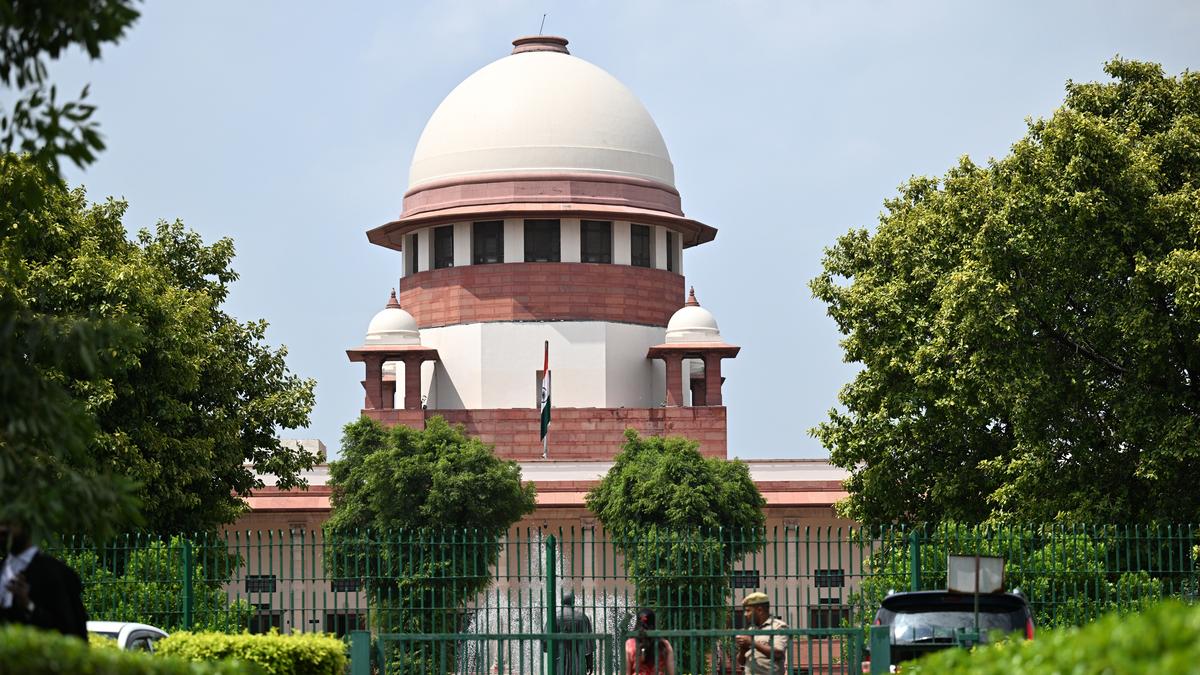Supreme Court Constitution Bench to issue notice on presidential reference regarding Court's authority over State Bills.
The court will hear the matter next on July 29.
The court issues notices to all States through their Chief Secretaries and standing counsels.
The Chief Justice remarks that the matter concerns every State.
Senior advocate P. Wilson, appearing for the State of Tamil Nadu, says all issues are already settled in the April 8 Tamil Nadu Governor judgment.
Senior advocate K.K. Venugopal, appearing for the State of Kerala, questions the maintainability of the Presidential Reference.
The court records the Attorney General of India’s agreement to assist the court.
The Chief Justice says the court will issue notices to the Union and all State governments; hearing to begin in mid-August.
“We are keeping all the questions open”, the Chief Justice underscores.
The CJI-led Constitution Bench assembles to hear the Presidential reference.
The advisory jurisdiction of the Supreme Court under Article 143 is a relic of the Government of India Act, 1935. It vested the Governor-General with discretionary power to refer any question of law of public importance to the federal court for its opinion.
As per Article 143, the President may refer any question of law or fact of public importance to the Supreme Court for its opinion. The President makes such a reference based on the advice of the Union council of ministers. Article 145 of the Constitution provides that any such reference shall be heard by a bench of minimum five judges.
President Droupadi Murmu seeks Supreme Court opinion under Article 143, sparking debate on advisory jurisdiction and constitutional interpretation.
Supreme Court recalls President Prasad's power struggle over Hindu Code Bill, highlighting constitutional role of Indian President.
The legal fraternity was divided on whether the Presidential Reference to the Supreme Court on its order in the Tamil Nadu Governor case was merely a ploy by the Union government to “bypass” the normal legal process of challenging the Supreme Court verdict.
Tamil Nadu Chief Minister M.K. Stalin lashed out on Thursday (May 15, 2025) that the Reference was an attempt to subvert the constitutional position settled by the April 8 Supreme Court judgment and other judicial precedents.
Senior advocate Kapil Sibal agreed with the Chief Minister’s viewpoint that the Reference was a clandestine way to reverse the judgment by a two-judge Bench headed by Justice J.B. Pardiwala.
Former Supreme Court judge, Justice Sanjay Kishan Kaul however said seeking a review of the judgment would not be decisive. Moreover, the power of the President to make a Reference cannot be taken away by the Supreme Court’s review or curative jurisdiction.
President Droupadi Murmu seeks Supreme Court opinion on timelines for President and Governors in State Bill process.
Supreme Court finds Tamil Nadu Governor’s conduct on 10 re-passed Bills was ‘unconstitutional’, puts Governors on the clockSupreme Court criticizes Tamil Nadu Governor for delaying crucial bills, sets time limits for future actions, emphasizing Constitutional obligations.
Supreme Court criticizes Tamil Nadu Governor for delaying crucial bills, sets time limits for future actions, emphasizing Constitutional obligations.
The Supreme Court is all set to hear a Presidential reference today, questioning whether the court can “impose” timelines and prescribe the manner of conduct of Governors and the President while dealing with State Bills sent to them for assent or reserved for consideration.
A Constitution Bench comprising Chief Justice of India B.R. Gavai, and Justices Surya Kant, Vikram Nath, P.S. Narasimha, and A.S. Chandurkar will hear the matter.
Live news/laws/judiciary (system of justice)/Governor/Supreme Court



 Motivational
Motivational 22 Jul, 2025
22 Jul, 2025 Samuel Walker
Samuel Walker